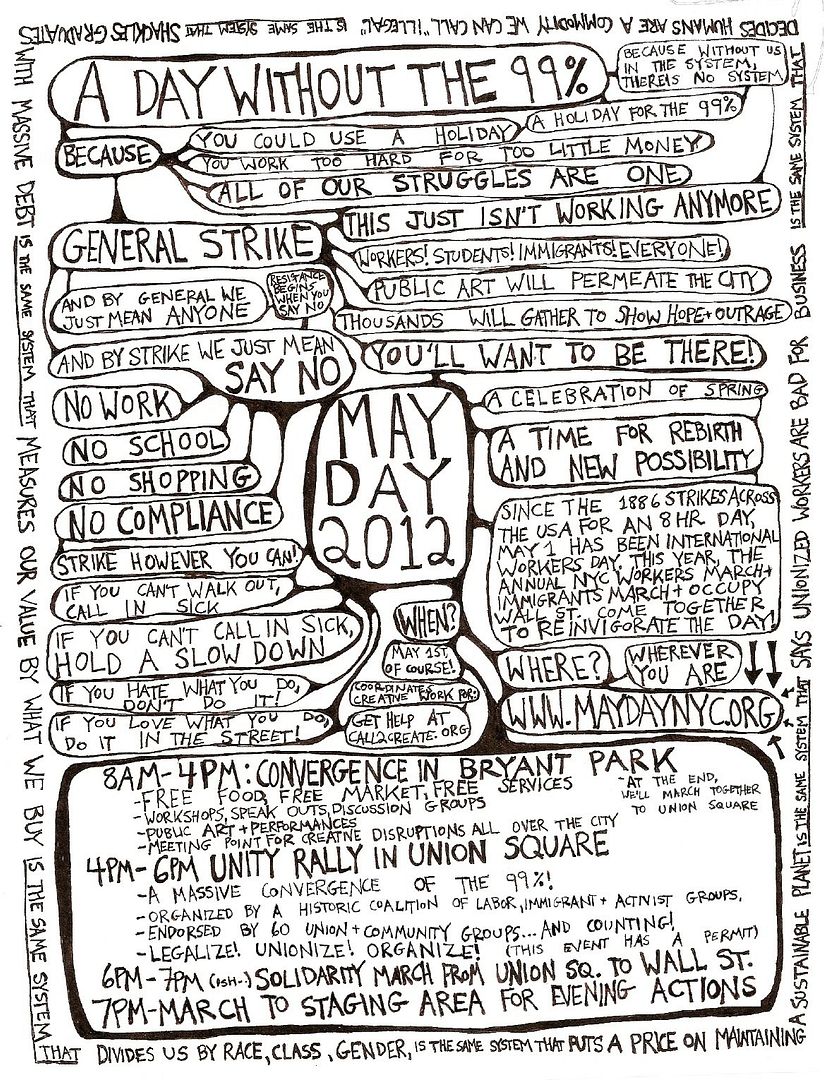Cross posted from The Stars Hollow Gazette
Where the hell is the outrage? That is the question that senior fellow at Campaign for America’s Future and former executive at AIG, Richard (RJ) Eskow asks about the current state of the US econoomy:
From the first breath of life to the last, our lives are being stolen out from under us. From infant care and early education to Social Security and Medicare, the dominant economic ideology is demanding more lifelong sacrifices from the vulnerable to appease the gods of wealth.
Middle-class wages are stagnant. Unemployment is stalled at record levels. College education is leading to debt servitude and job insecurity. Millions of unemployed Americans have essentially been abandoned by their government. Poverty is soaring. Bankers break the law with impunity, are bailed out, and go on breaking the law, richer than they were before.
And yet, bizarrely, the only Americans who seem to be seething with anger are the beneficiaries of this economic injustice — the wealthiest and most privileged among us. But those who are suffering seem strangely passive.
As long as they stay that way, there will be no movement to repair these injustices. And the more these injustices are allowed to persist, the harder it will be to end them.
Where the hell is the outrage? And how can we start some?
He notes that Paul Krugman, too, is feeling grim about the possibility that high unemployment has become acceptable and that the “political and policy elite” see no need to find a solution, one that is staring them right in the face:
First of all, I think many of us used to believe that sustained high unemployment would lead to substantial, perhaps accelerating deflation – and that this would push policymakers into doing something forceful. It’s now clear, however, that the relationship between inflation and unemployment flattens out at low inflation rates. We can probably have high unemployment and stable prices in Europe and America for a very long time – and all the wise heads will insist that it’s all structural, and nothing can be done until the public accepts drastic cuts in the safety net.
But won’t there be an ever-growing demand from the public for action? Actually, that’s not at all clear. While there is growing “austerity fatigue” in Europe, and this might provoke a crisis, the overwhelming result from U.S. political studies is that the level of unemployment matters hardly at all for elections; all that matters is the rate of change in the months leading up to the election. In other words, high unemployment could become accepted as the new normal, politically as well as in economic analysis.
Eskow points to the factors why Americans have learned to live in a “quiet state of desperation” and offers a Action Plan for the solution:
1. Expand our avenues of political expression: First, we need to remind ourselves that electoral politics is not the only productive avenue for political activism -that we need strong and independent voices and movements.
2. Refuse to let politicians use social issues to exploit us economically: We also need to reject the exploitation and manipulation of progressive values by corporatist politicians who use social issues like gay marriage and reproductive rights exactly the way Republicans do — to manipulate their own base into ignoring their own economic interests. Politicians who don’t take a stand on economic issues should be rejected, up and down the ticket.
3. Explain what is changing — and contrast what is with what should be:We need to do a better job of explaining what’s happening, so that we can make people aware of the harmful changes taking place all around them.And it’s not just about “change”: It’s also about contrast – between economic conditions as they are, and conditions as they should be and could be, if we can find the political will.
4. Expand the vocabulary of the possible: The “learned helplessness” outlook says “the rich and powerful always win; we don’t stand a chance.” History tells us otherwise. From the American Revolution to the breaking up of the railroads, from Teddy Roosevelt’s trust-busting to FDR’s New Deal, from Ike’s Social Security and labor union expansion to LBJ’s Great Society victories, we need to remind ourselves of what we’ve accomplished under similar conditions.
5. Tell stories: And we need to tell stories — human stories.
Some of those human stories started 22 years ago when Bill Moyers began documenting the stories of two families ordinary families in Milwaukee, Wisconsin who had lost good paying factory jobs and how they have managed over the years. In a 90 minute special on PBS’ Frontline, Moyers revisits the the Stanleys and Neumanns anf their struggles to finding other jobs, getting retrained yet still finding themselves on a “downward slope, working harder and longer for less pay and fewer benefits, facing devastating challenges and difficult choices.”
Over at AMERICAblog, our friend Gaius Publius has posted his interview with RJ Eskow that was taped at this year’s Netroots NAtion in San Jose, CA. It’s an excellent conversation.




 It’s May, the season changes and
It’s May, the season changes and